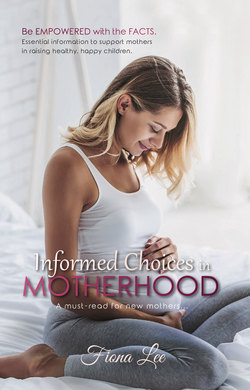Читать книгу Informed Choices in Motherhood - Fiona Lee - Страница 5
На сайте Литреса книга снята с продажи.
The Myth of the Placental Barrier
ОглавлениеIt was once a common belief that the placenta protected the baby from unwanted toxins. Whilst it may offer some protection from infection, the placental barrier doesn’t protect from everything. Research has shown that the umbilical cord carries not only oxygen and life-giving nutrients, but also pollutants, chemicals and other toxins from the mother.¹ These pollutants can easily cross the placenta to reach an unborn baby.
The average newborn baby is born with over 200 chemicals in their body.
In a shocking study conducted by the Environmental Working Group, researchers at two major laboratories found an average of 232 industrial chemicals and pollutants in the umbilical cord blood from a group of 10 babies born in US hospitals. These babies were chosen randomly, yet each showed a broad range of chemicals in their blood. Tests revealed a total of 287 chemicals in the group. Of the chemicals detected in these babies, 180 are known to be carcinogenic, with 217 known to be toxic to the brain and nervous system.² The dangers of pre-natal and post-natal exposure to this complex mix of carcinogens and neurotoxins have never been studied.
What this tells us is that unborn babies are being exposed to more environmental toxins than ever before. Chemical exposure in the womb or first few years of life can be drastically more harmful than later in life. There is substantial evidence that suggests children face increased risk from chemical pollutants.³
Some of the reasons for this increased risk are that:
Young babies have an undeveloped, porous blood-brain barrier, which allows greater exposure to the developing brain.
A baby’s organs are rapidly developing and therefore more vulnerable to chemical exposure.
The systems that detoxify chemicals and pollutants from the body are not yet fully developed.
There are so many choices we make during our pregnancy that are important to both our own health and our child’s health, yet many parents will spend very little time at all researching these vital issues. What I’m going to discuss now is one of those subjects and one that brings with it much heated debate and emotion – Pregnancy vaccination.
In the later stages of your pregnancy, your doctor will probably advise you to be vaccinated for whooping cough and influenza (depending of course on which country you live in and what the current recommendations are). To help you to make a truly informed choice, I am going to share the facts on this very important issue.
